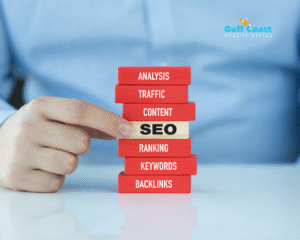In the rapidly evolving digital landscape of 2025, having an exceptional website is more important than ever. With cutting-edge technologies and design innovations continually emerging, choosing the right website builder is key to creating a site that not only captivates your audience but also performs flawlessly across all devices.
This guide features the Top 5 Website Builders of 2025, each selected for its advanced features and ability to adapt to the latest trends in web design and functionality. Whether you’re building a sleek personal blog, a high-performance e-commerce site, or a sophisticated corporate portal, these builders offer the tools and flexibility you need to craft a standout online presence.
Discover which website builder best fits your needs and set your site up for success in the dynamic digital world of today.
Top 5 Best Website Builders for 2025: What You Need to Know
In 2025’s fast-paced digital world, having an outstanding website is a must. With new technologies and innovative designs emerging, choosing the right website builder is key to creating a site that captivates your audience and performs flawlessly across devices.
This guide highlights the Top 5 Website Builders of 2025, carefully selected for their advanced features and ability to keep up with the latest trends. Whether you’re building a personal blog, an e-commerce powerhouse, or a corporate site, these tools offer everything you need to create a standout online presence.
Let’s explore which platform suits your needs and set your website up for success.
1. Wix
Wix is a top choice for creating a professional website quickly and easily, with no technical expertise required.
Key Features:
- Drag-and-Drop Editor: Effortlessly customise your site using an intuitive editor.
- Artificial Design Intelligence (ADI): Generate a tailored website in minutes by answering a few questions.
- App Market: Access third-party tools to enhance your site’s functionality.
Cons:
- Limited flexibility in template customisation.
- Slower load times may affect performance and SEO.
- Basic SEO tools compared to competitors.
Why Choose Wix?
Wix is perfect for those seeking an easy-to-use platform with plenty of design options and functional integrations.
2. Squarespace
Squarespace stands out with its elegant, professionally designed templates that deliver both style and functionality.
Key Features:
- Sophisticated Templates: Beautiful designs that are mobile-responsive.
- Integrated E-Commerce: Built-in tools for selling products and services online.
- Analytics: Gain insights into visitor behaviour and site performance.
Cons:
- Limited design customisation.
- Higher price point.
- Steeper learning curve for beginners.
Why Choose Squarespace?
Ideal for users who value design and integrated e-commerce features for a polished online presence.
3. Shopify
Shopify is the ultimate website builder for creating and managing an e-commerce store.
Key Features:
- E-Commerce Powerhouse: Advanced tools for inventory, sales, and payment management.
- Customisable Templates: Create a unique, branded shopping experience.
- App Store: Add extra functionality with third-party integrations.
Cons:
- Higher costs, including transaction fees for external payment gateways.
- Limited options for non-e-commerce sites.
- Advanced features may require additional learning.
Why Choose Shopify?
For those focused on online retail, Shopify’s specialised tools are unmatched.
4. Webflow
Webflow offers advanced design flexibility for users who want complete creative control over their site.
Key Features:
- Granular Design Control: Craft intricate layouts without coding.
- Built-In CMS: Easily manage dynamic content like blogs or portfolios.
- Responsive Design Tools: Optimise your site for all devices.
Cons:
- Steeper learning curve.
- Higher pricing.
- Limited built-in marketing tools.
Why Choose Webflow?
Perfect for designers and developers who prioritise creative freedom and responsive design.
5. WordPress.com
WordPress.com remains a favourite for its versatility and powerful content management features.
Key Features:
- Customisation: Access thousands of themes and plugins to tailor your site.
- Content Management: Ideal for blogs, news sites, and structured content.
- Community Support: A large user base provides extensive resources and plugins.
Cons:
- Customisation may require coding knowledge.
- Performance issues if not optimised.
- Higher learning curve for beginners.
Why Choose WordPress.com?
Great for users needing a flexible platform with extensive content and plugin options.
Ready to Build Your Website?
Choosing the right platform depends on your specific needs—whether it’s advanced design, e-commerce functionality, or content management. Wix, Squarespace, Shopify, Webflow, and WordPress.com each cater to different goals, ensuring there’s a perfect match for your project.
Need expert guidance? Let us help you craft a customised, high-quality website that meets your objectives and enhances your online presence. Reach out today!




